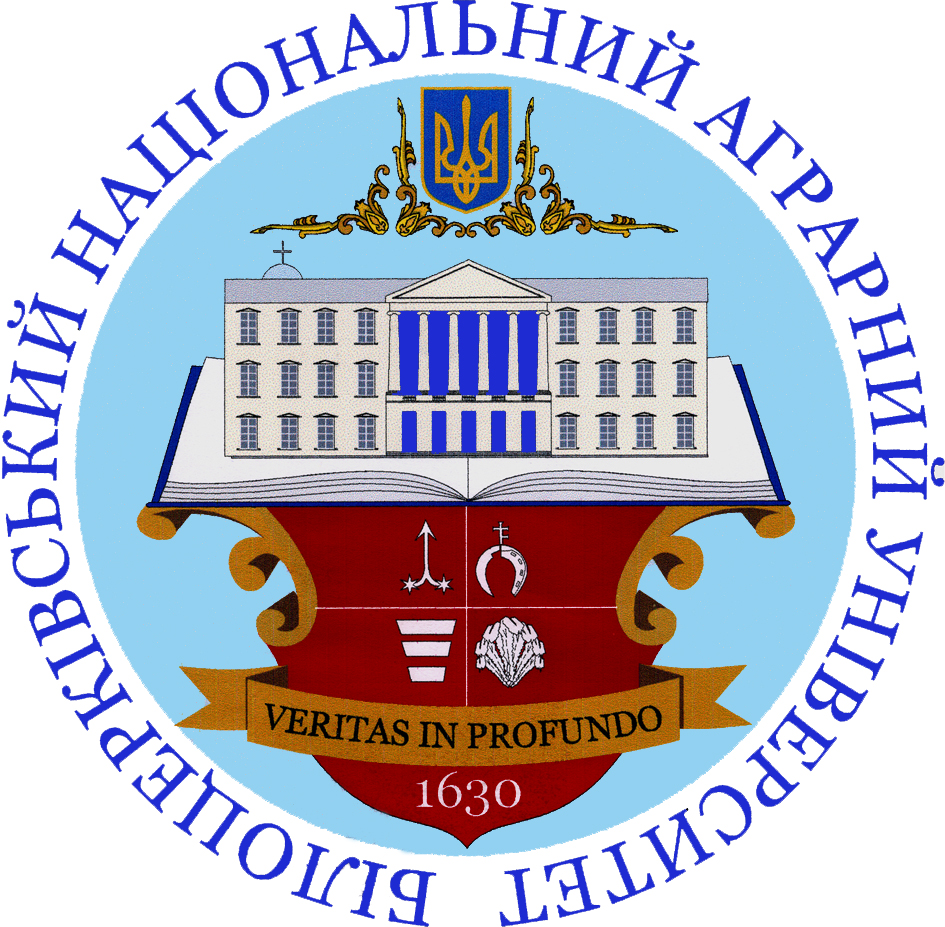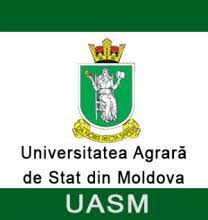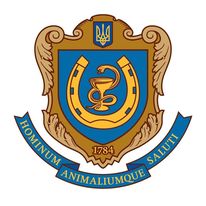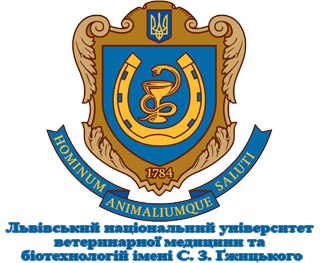University: Bila Tserkva National Agrarian University (BTNAU, Ukraine
The main discipline "Diagnosis of parasitic diseases" has the main purpose - to form a system of knowledge and skills for the organization of a scientifically sound system of diagnostic measures for parasitic diseases of animals, including those dangerous to human health.
Вибіркова навчальна
дисципліна «Діагностика паразитарних хвороб» основною своєю метою має – сформувати
систему знань і навичок з організації науково обґрунтованої системи діагностичних
заходів за паразитарних хвороб тварин, в тому числі небезпечних для здоров’я
людини.
Програма розроблена в рамках міжнародного проекту «Поліпшення навичок спеціалістів з лабораторної практики у фахівців агропродовольчого сектору Східної Європи» (Ag-Lab) за Програмою Erasmus +, проект KA2 n 586383-EPP- 1-2017-1-SI-EPPKA2-CBHEJP (2017-2978/001-001) для забезпечення спеціалізації «Лабораторна справа» за напрямом «Діагностика паразитарних хвороб»

- Teacher: Alexander Bonkovski
University: Bila Tserkva National Agrarian University (BTNAU), Ukraine
The aim of studying the discipline "Chemical and toxicological research methods" is to provide theoretical prerequisites for studying the organization of chemical-toxicological research and methods of detecting toxicants from biological material by modern methods, acquisition by the student of knowledge, skills and abilities on the technique of obtaining and preparing biological material, conducting its chemical and toxicological research, correct interpretation of the obtained results, their connection with clinical symptoms in order to diagnose and predict the course of the disease.

- Teacher: Alexander Bonkovski
University: Bila Tserkva National Agrarian University (BTNAU, Ukraine
The discipline "Laboratory research of food hygiene" provides the acquisition of competence in the organization and conduct the research on the use of modern laboratory methods, interpretation of the results. The discipline is aimed at acquiring practical skills and competence of laboratory research activities.

- Teacher: Alexander Bonkovski
University: Bila Tserkva National Agrarian University (BTNAU, Ukraine
- Knowledge and application of rules on laboratory biosafety, risk management.
The result of teaching the discipline is the acquisition of the following knowledge and skills by students:
- Principles of automation of diagnostics.
- International standards for bacteriological methods of research.
- Storage methods for microorganisms.
- Chromatogenic media.
Preparation of nutrient media for the cultivation of microorganisms of
different nosological groups, their sterilization and determination of pH.
Be able:
- to prepare, process samples of biological and pathoanatomical material of animals, products of animal origin, feed, soil, water, plants.
- dispose of wastes, waste, materials and reagents.
- Disinfect laboratory glassware, tools, workwear, biological material, laboratory equipment.
- Determine the quality of disinfection and sterilization.
- determine the sanitary condition of the laboratory premises.
- to perform PCR, ELISA.
- to conduct diagnostic studies in environmental objects and in the
diagnosis of infectious animal diseases.

- Teacher: Alexander Bonkovski
University: Bila Tserkva National Agrarian University (BTNAU, Ukraine
Working curriculum of the discipline "Epizootology and system of diagnostic procedures"
According to the curriculum for the 2019-2020 academic year, only 260 academic hours (8 ECTS credits) have been allocated for full-time study of the discipline "Epizootology and the system of diagnostic procedures", incl. classroom - 92 hours (lectures - 48, practical classes - 48), independent work of students - 133 hours. The discipline is part of the curriculum "Laboratory diagnosis of infectious diseases".
Згідно з навчальним планом на 2019–2020 навчальний рік, на вивчення дисципліни «Епізоотологія та система діагностичних процедур» для денної форми навчання виділено всього 260 академічних годин (8 кредитів ЕCTS), у т.ч. аудиторних – 92 годин (лекції – 48, практичні заняття – 48), самостійна робота студентів – 133 години. Дисципліна є частиною навчальної програми «Лабораторна діагностика інфекційних хвороб». Програма розроблена в рамках міжнародного проекту «Поліпшення навичок спеціалістів з лабораторної практики у фахівців агропродовольчого сектору Східної Європи» (Ag-Lab) за Програмою Erasmus +, проект KA2 n 586383-EPP- 1-2017-1-SI-EPPKA2-CBHEJP (2017-2978/001-001) для забезпечення спеціалізації «Лабораторна справа» за напрямом «Лабораторна діагностика інфекційних хвороб»

- Teacher: Alexander Bonkovski
University: State Aagrarian University of Moldova (SAUM)
The content of the course unit contributes to the training of future specialists in the field of Veterinary Medicine, by acquiring skills the ability to learn and put into practice the knowledge gained, the demonstration of the spirit of initiative and critical thinking, the ability to teamwork, knowledge and application of information technologies, ability to communicate in a foreign language, ability to communicate with colleagues, animal owners, the media and hierarchically superior authorities, etc.), as well as specific skills in knowing and understanding biological processes of parasites that occur in the animal body and the theoretical basis of medical-veterinary sciences, ethical and legal norms which determines and regulates parasite-host processes and relationships; analysis of the results of parasitological examination of macro- and modern methodology for researching parasitic phenomena in the animal body in order to exercise at an optimal level the professional responsibilities, collection, interpretation and analysis of relevant data in the field of parasitology, elaboration of activity plans for entity of the managerial decisions related to the medical-veterinary activity.

- Teacher: Elena Scripnic
University: State Agrarian University of Moldova (SAUM)
Course unit contributes to the training of future specialists in the field of Veterinary Medicine, by acquiring skills the ability to learn and put into practice the knowledge gained, to demonstrate the spirit of initiative and teamwork, knowledge and application of information technologies, ability to communicate in a foreign language, ability to communicate with colleagues, animal owners, the media and hierarchically superior authorities, etc.), as well as specific skills in knowing and understanding biological processes of parasites occurring in the animal body and the theoretical basis of the veterinary sciences, ethical norms and which determines and regulates the processes and relationships of parasite-host examination of organs, tissues, bases of analysis of examination results macro- and microscopic preparations, the essence of the processes and anatomopathological changes installed, the modern methodology of research of the morpho-anatomopathological phenomena in the animal organism in order to exercise at an optimal level the professional attributions, collection, interpretation and analysis of relevant data in the field of veterinary parasitology elaboration of activity plans for the entity application of modern information technologies, adoption and optimization of managerial decisions related to the veterinary activity, establishing mutually beneficial relationships with local partners.

- Teacher: Elena Scripnic
University: Lviv State Agrarian University, Ukraine
Chemical-toxicological methods of diagnosing animal diseases is a discipline that combines use of biochemical and chemical-toxicological laboratory tests, techniques and sequence of their application to study the condition of individual organs and systemic animals. The aim of the discipline are to study laboratory biochemical and chemical-toxicological methods used in the diagnosis of various diseases of this etiology as well as the acquisition of knowledge in this discipline that allow veterinarians works in laboratories to use them extensively in their daily programs. .

- Teacher: LNUVMB Lviv university
University: Lviv State Agrarian University, Ukraine
The purpose of studying of the discipline are to know the etiology, pathogenesis and methods of laboratory diagnosis of bacteriosis and mycoses of animals.

- Teacher: LNUVMB Lviv university
University: Stepan Gzhytskyi National University of Veterinary Medicine and Biotechnologies Lviv, Ukraine
The purpose this course is to provide specialists in the field of veterinary medicine with the necessary knowledge to ensure proper laboratory research (testing) of quality and safety of food.
Метою вивчення даного курсу є формування у фахівців в галузі ветеринарної медицини необхідних знань із забезпечення належного проведення лабораторних досліджень (випробувань) якості та безпечності продуктів харчування.

- Teacher: LNUVMB Lviv university
